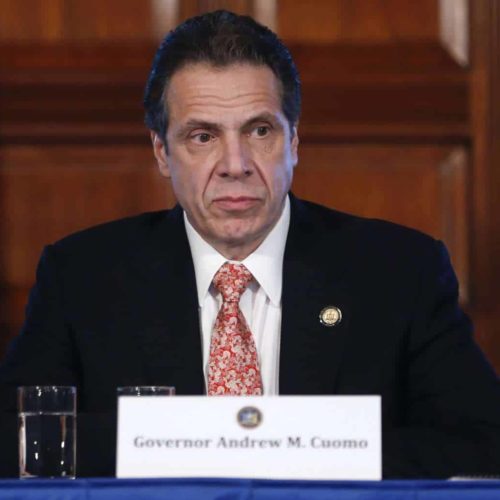Introduction
New York State will ban hydraulic fracturing — fracking — within its borders, officials announced Wednesday, citing potential health risks.
At Governor Andrew Cuomo’s year-end cabinet meeting, acting state Health Commissioner Howard Zucker said there need to be more studies on the health effects of fracking — pumping water, sand and chemicals into the ground to dislodge natural gas and oil — before the practice is allowed in New York.
“We cannot afford to make a mistake,” Zucker said, according to The Journal News. “The potential risks are too great. In fact, they are not fully known.”
The Center for Public Integrity and InsideClimate News have conducted a 20-month investigation into air pollution associated with fracking in Texas, the epicenter of a massive drilling boom. Some South Texas residents who live atop the Eagle Ford Shale say drilling and related activities have taken a toll on their health with little notice from state regulators.
A recent story in the series focused on the Barnett Shale in North Texas and highlighted new research suggesting proximity to fracking sites and oil and gas infrastructure could pose health risks.
New York’s Department of Environmental Conservation (DEC) will issue a legally binding statement to ban fracking early in 2015, the Journal News reported. Environmentalists praised the New York ban while many in the industry decried it as irresponsible.
“This is the wrong direction for New York,” Karen Moreau, executive director of the American Petroleum Institute’s New York State Petroleum Council, said in a prepared statement. “A politically motivated and equally misinformed ban on a proven technology used for over 60 years – throughout the country to great success – is short-sighted and reckless, particularly when New York depends on safely produced natural gas just over the border in Pennsylvania.”
Kate Sinding, director of the Natural Resources Defense Council’s Community Fracking Defense Project, said Cuomo’s decision was based on science rather than “pressure from powerful oil and gas companies.”
“Mounting scientific evidence points to serious health risks from fracking operations,” she said. “New Yorkers have made it loud and clear that we want to keep this reckless industry at bay. With this announcement, the governor has listened—and he has demonstrated both courage and national leadership on this critical issue.”
Paul Hartman, Northeast director for America’s Natural Gas Alliance, called the ban “ill-advised” and said it has “always been a political, rather than a public health decision” that would keep New Yorkers from taking advantage of the environmental and economic benefits of natural gas.
New Yorkers have been waiting a long time for a decision on fracking.
The state implemented a de facto moratorium in 2008 while the DEC began reviewing the potential impacts of the practice. That study will be released in 2015. In 2012, the state Department of Health also began studying the health impacts of fracking — a report Cuomo said he would release by the end of the month.
The New York ban could prove more symbolic than anything else. While the Marcellus Shale extends into the southern part of the state, most of the formation lies beneath West Virginia, Pennsylvania and Ohio, all of which allow fracking.
Dave Spigelmyer, president of the Marcellus Shale Coalition, an industry group, pointed to Pennsylvania as “proof-positive that with strong and common sense regulations” and new technology, “shale development is a win-win” for the environment and economy. The New York State Petroleum Council’s Moreau said the economic benefits that neighboring states have realized now won’t be seen in New York.
“This is a missed opportunity to share in the American energy renaissance, and for New York’s future prosperity,” she said.
Some environmentalists, like Sierra Club Executive Director Michael Brune, said the New York ban could have national significance.
“Today’s decision will shake the foundations of our nation’s flawed energy policy, and we can only expect that it will give strength to activists nationwide who are fighting fracking in dozens of states and hundreds of cities and counties,” Brune said.
In November, voters in Denton, Texas, Athens, Ohio, and San Benito and Mendocino counties in California decided to ban fracking. Youngstown, Ohio, and Santa Barbara County, California, voted against a ban.
Read more in Environment
Environment
Chemical Safety Board cuts investigations amid alleged mismanagement
Allegations of severe mismanagement continue to haunt the Chemical Safety Board, tasked with investigating industrial chemical accidents
Environment
Environment stories you may have missed
The Center for Public Integrity’s best environment stories from 2014


Join the conversation
Show Comments